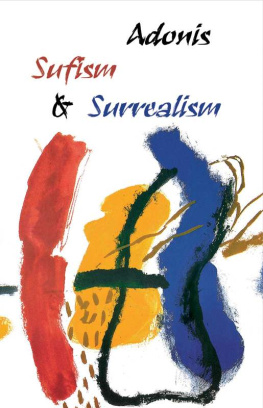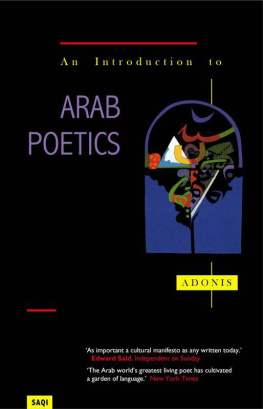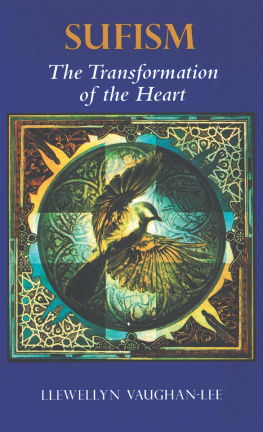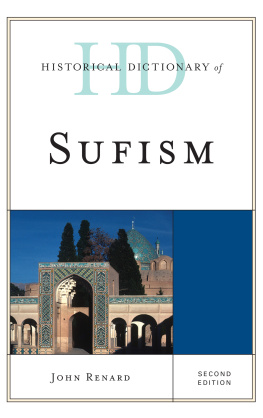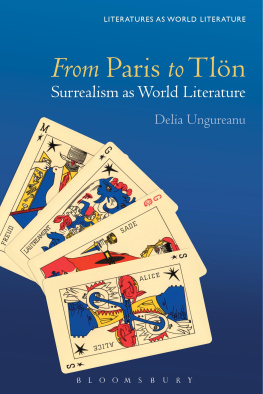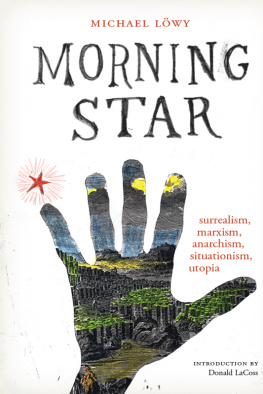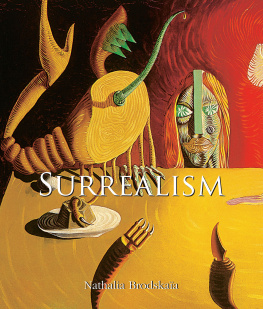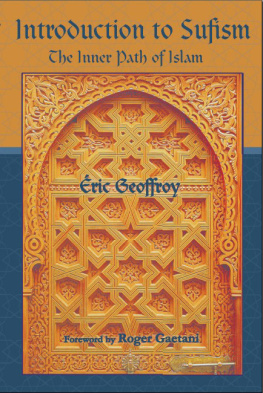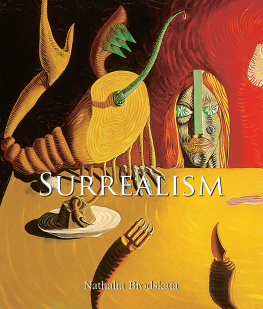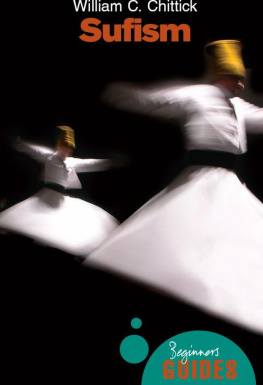Adonis - Sufism and Surrealism
Here you can read online Adonis - Sufism and Surrealism full text of the book (entire story) in english for free. Download pdf and epub, get meaning, cover and reviews about this ebook. year: 2013, publisher: Saqi, genre: Religion. Description of the work, (preface) as well as reviews are available. Best literature library LitArk.com created for fans of good reading and offers a wide selection of genres:
Romance novel
Science fiction
Adventure
Detective
Science
History
Home and family
Prose
Art
Politics
Computer
Non-fiction
Religion
Business
Children
Humor
Choose a favorite category and find really read worthwhile books. Enjoy immersion in the world of imagination, feel the emotions of the characters or learn something new for yourself, make an fascinating discovery.
Sufism and Surrealism: summary, description and annotation
We offer to read an annotation, description, summary or preface (depends on what the author of the book "Sufism and Surrealism" wrote himself). If you haven't found the necessary information about the book — write in the comments, we will try to find it.
Adonis: author's other books
Who wrote Sufism and Surrealism? Find out the surname, the name of the author of the book and a list of all author's works by series.
Sufism and Surrealism — read online for free the complete book (whole text) full work
Below is the text of the book, divided by pages. System saving the place of the last page read, allows you to conveniently read the book "Sufism and Surrealism" online for free, without having to search again every time where you left off. Put a bookmark, and you can go to the page where you finished reading at any time.
Font size:
Interval:
Bookmark:
SUFISM AND SURREALISM
ADONIS
SUFISM AND SURREALISM
Translated from the Arabic by
Judith Cumberbatch
SAQI
Also by the author published by Saqi
An Introduction to Arab Poetics
Contents
Introduction
Sufism and Surrealism is a title that will arouse controversy if not disgust among those interested in Surrealism, as well as Sufism. It would be surprising to find a consensus, whether this interest is positive or negative.
The prime objection that will be raised will be that Sufism is a religious movement, oriented towards religious salvation, whereas Surrealism is an atheistic movement, with no aspirations to heavenly salvation. Is it possible to link the religious and the secular? Although such an objection appears valid, it does not completely rule out the possibility that many of the intellectual issues inherent in Sufism and Surrealism are similar to or intersect with each other. Atheism does not necessarily exclude mysticism, nor does Sufism necessarily include a belief in traditional religion or a traditional belief in religion.
In any case, this objection is of fundamental benefit to the researcher as it compels him to cast a fresh eye on the accepted meaning and definition of both Surrealism and Sufism and to understand them in a new way. It is true to say that God, in the traditional religious sense of the word, does not exist in Surrealism, as Andr Breton confirms when he says that the sacred in which he believes is either not religious or is outside religion. But it is also true to say that God, in the traditional religious sense of the word, is not present in Sufism, or, rather, let us say that in Sufism God does not have a separate and distinct existence from the created universe as he does in orthodox religion, but is a part of it, a presence of unity and oneness. God in Sufism is not only the one but also the many. He is part of existence, the high point (as Breton calls it), the point at which what we call matter and what we call the spirit come together and all contradictions between the two are eliminated. He is not only the one who has brought the created universe into being, as an external being and without being joined to it, but he is also the created universe itself in its dynamism and infinity. He is not in the sky or on earth, but is the sky and earth together merged into one. Journeying to him does not demand that we leave existence and ourselves, but instead that we go further and further into existence and ourselves. The infinite (God) is not outside matter; it is in matter. The infinite is man and matter. He is somewhere or other but inside the place as well. He is another country, but it exists about us and in us.
When talking about Sufism, therefore, we have to abandon prevailing doctrines and orthodox interpretations in particular.
We have to go back to its origins. From the very beginning, Sufi doctrines were linked to what was hidden and transcendental. The movement towards Sufism came about because reason, religious orthodoxy and science were unable to answer many of the profound questions posed by man. For man felt that there were problems that continued to disturb him even when all intellectual, religious, legal and scientific problems had been solved by logical, legal and scientific means. This is what was insoluble (is insoluble), was unknown (is unknown), was not spoken about (is not spoken about). It is what gave birth to Sufism. It was these same factors that led to the emergence of Surrealism. Surrealism claimed primarily to be a movement, which spoke what had not been nor was spoken about. The essence of Sufism, as I understand it was the unspoken, the unseen, the unknown.
The ultimate goal of the Sufi is to become one with the invisible, that is, the absolute. The Surrealist aspires to the same thing; the nature of the absolute be it God, reason, matter itself, thought or spirit or rather the motion of becoming absorbed into it is unimportant, as is the path that leads to it. In all cases there is a return to the origin of creation, whatever that origin is. It is a return that assumes an alteration in the one who is at the same time returning to and merging with the origin. The origin, in other words, remains itself as it is revealed through its creations and as its creations return to it.
In an article by Guy-Ren Doumayrou, the writer quickly distinguishes between Surrealism and esotericism, saying that the former is a movement that seeks enlightenment from an invisible light, the light (of the spirit?) or thought, and which seeks to uncover the true action of this thought, whereas the second tries to uncover the hidden functions of nature. While Surrealism strives to return freedom to thought, esotericism works to free the spirit. He says that the supreme point to which Breton refers is not mysticism and cites what Breton says in one of his Entretiens:
It is well known that the point at which we can resolve all the contradictions which gnaw away at us and create despair, and which, in my book Amour fou, I have termed the supreme point, remembering a beautiful spot in the lower Alps, cannot be attained through mysticism.
Judging by the article and the context in which the word is used, it is most likely that the word mysticism here means esotericism.
Doumayrou says that since its inception, Surrealism has constantly been amazed by the spontaneous images that flow out from dreams and through the use of oral and creative tools and the systematic activities it practises, which reached their peak with
The writer (Doumayrou) states that the Surrealists, individually and collectively, are constantly preoccupied with finding ways of expressing the true functioning of thought through psychic tools, outside any control exercised by reason or any aesthetic or moral concern, and of releasing the unconscious in the channels of daily life.
He says subsequently that Surrealism is profoundly interested in the irrational but not to the extent of believing in a God or divine power, as Michel Carrouges and Pierre Klossowski try to claim (p. 3 of Doumayrous article). The Surrealists believe that any distinction between the imaginative and the real is meaningless. Reality as they understand it is not the reality of the common illusions of dualism. Imagination, they believe, is what guides the conscious to the nub of agitation or the vibrations fondatrices (ibid., p. 4). The issue in fact concerns a world of vibrations, according to Doumayrou, which specialist writers continue to affirm when speaking about auras.
Some writers assert that everyone is surrounded by three levels of vibrations colour, extensity and sense. But if we are to believe Carlos Castaneda and his Yaqui shaman, seeing these things in a way other than by chance demands a very harsh training (ibid., p. 5).
The author points to what Breton says about the link between Surrealism and nature, in which he asserts that, the Surrealists find it difficult to accept the premise that nature is the enemy of man, but rather assume that man has lost the keys to it, which he possesses intuitively and which used to keep him in intimate and constant contact with it. Since that time he has been trying other keys in vain (ibid., p. 5; Entretiens, p. 248).
Breton goes on to say that, There is no value in a scientific knowledge of nature unless there is contact with nature through poetic and, dare I say, mythic ways (Entretiens, p. 248).
Finally, the writer recognizes that the esoteric dimension (internal, hidden) and the knowledge of magic and the occult appear in the second Surrealist manifesto to explain the general human crisis (Doumayrou article, p. 6) when Breton points to the similarities between what the Surrealists and Alchemists are searching for. Surrealist research, he says, along with alchemic research presents a remarkable unity of purpose. The philosophers stone is nothing other than a thing, which should be given to mans imagination to take forcible revenge on everything, and after years of taming the spirit and crazy submission, here we are again, attempting finally to free this imagination by the long, huge, reasoned deregulation of the senses (
Next pageFont size:
Interval:
Bookmark:
Similar books «Sufism and Surrealism»
Look at similar books to Sufism and Surrealism. We have selected literature similar in name and meaning in the hope of providing readers with more options to find new, interesting, not yet read works.
Discussion, reviews of the book Sufism and Surrealism and just readers' own opinions. Leave your comments, write what you think about the work, its meaning or the main characters. Specify what exactly you liked and what you didn't like, and why you think so.

